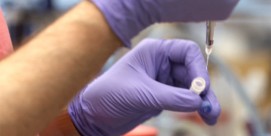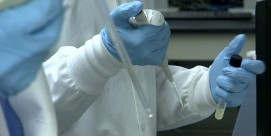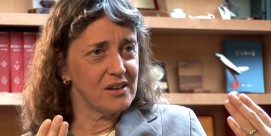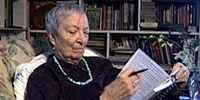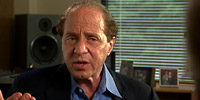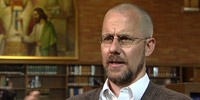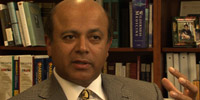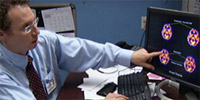Tag: Science
A promising new medical technique known as gene editing—deleting, inserting, or replacing genes in human cells—has the potential to cure many genetic diseases. But ethicist Marcy Darnovsky of the Center for Genetics and Society is concerned about the safety of the technology, the ethical questions it raises, the unintended consequences that may be passed on to future generations, and the possibility of wealthy parents genetically enhancing their children regardless of medical necessity. More
“Religion and science are two quite different things and we need them both. Science takes things apart to see how they work. Religion puts things together to see what they mean.” More
“If our earth is not the only inhabitable world, what does that imply?” asks Dr. Jennifer Wiseman, director of the Dialogue on Science, Ethics, and Religion at the American Association for the Advancement of Science. “That’s an exciting question and the kind of thing I hope will be discussed with joy in these institutions.” More
“In times when we are not particularly suffering, we do not have enough time for God. We are too busy with other things. And then the intense suffering comes, and we can not be busy with other things. And then God comes into the equation,” says the author of “A Wrinkle in Time.” More
Biological and technological evolution “is a spiritual process,” says this leading futurist. “Entities become more godlike, never reaching that ideal but moving in that direction exponentially.” More
Purposefulness and self-sacrifice in human life “can never be reduced to a machine,” according to this bioethicist. More
“Patients require that one-on-one encounter, the Samaritan function of being a physician,” says writer and Stanford Medical School professor Abraham Verghese. “I’m convinced that when the physician examines the patient, this is an incredibly important ritual.” More
“Being religious or spiritual has a very profound effect on our biology and our brain,” says neuroscientist Andrew Newberg. “It can change our brain and change ourselves over time.” More
“Patients require that one-on-one encounter, the Samaritan function of being a physician,” says writer and Stanford Medical School professor Abraham Verghese. “I’m convinced that when the physician examines the patient, this is an incredibly important ritual.” More
A series of significant developments have emerged in recent weeks in the field of stem cell science. Each adds exciting prospects for treating disease; each adds vexing complexity. With us to help understand the science and the issues: Rick Weiss, science writer for The Washington Post. More

